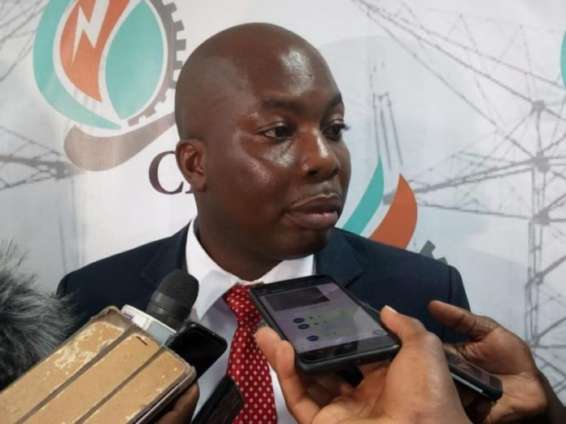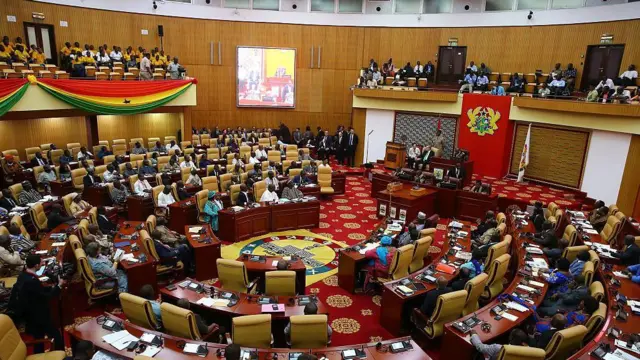The Chamber of Independent Power Producers (IPPs) in Ghana has refuted claims made by the Minister of Finance, Dr. Mohammed Amin Adam, that an agreement on debt restructuring has been reached after six years of negotiations.
Dr. Elikplim Kwabla Apetorgbor, CEO of the Chamber, dismissed these claims as misleading and inaccurate, bringing to light a significant discrepancy between the government’s statements and the reality of the ongoing negotiations.
In a statement, Dr. Apetorgbor emphasized that the last official engagement between some IPPs and the Government of Ghana’s negotiating team took place in April 2024. Since then, no consensus or agreement on debt restructuring terms has been reached. He pointed out that the Finance Minister’s assertion misrepresents the current status of negotiations.
“It has come to our attention that the Minister of Finance has made public statements indicating that a deal has been reached with Independent Power Producers (IPPs) regarding debt restructuring. We must categorically state that this assertion is misleading and inaccurate.
“The last engagement with some of the IPPs and the Government of Ghana’s negotiating team occurred in April 2024, and since then, no agreement on any terms has been reached. The posture and generalization that the government has secured a debt restructuring agreement with the IPPs are misleading and amount to public deception.”
Dr. Elikplim Kwabla Apetorgbor
Call for Transparency
Dr. Apetorgbor urged the Finance Minister to adopt a more transparent and honest approach in communications, avoiding statements that do not reflect the reality of the negotiations. He highlighted the Chamber’s commitment to constructive dialogue and the pursuit of a mutually beneficial resolution to the ongoing discussions.
The Chamber’s call for transparency and honesty is crucial, especially given the significant role that Independent Power Producers play in Ghana’s energy sector. Any misrepresentation of their agreements could have far-reaching implications for both the industry and the broader economy. Accurate and clear communication is essential to building trust and ensuring that all stakeholders are on the same page.
Menwhile, it is reported that only two IPPs, CenPower and Amandi, have accepted the government’s proposal to restructure their debts. The remaining IPPs, including Karpowership, Twin City Energy, Sunon Asogli, Cenit Energy, and AKSA, have rejected the government’s haircut proposal.
The Finance Minister, in a statement made in London, asserted that the IPPs had agreed to a reduction in their claims, allowing the government to spread payment over five years. “The negotiations have been going on for six years, and I am happy to announce that last week, I closed the negotiations with the IPPs,” Dr. Mohammed Amin Adam claimed.
This discrepancy between the government’s narrative and the Chamber’s account of the negotiations highlights the need for clear and accurate communication. The Independent Power Producers play a crucial role in Ghana’s energy sector, and any misrepresentation of their agreements could have significant implications for both the industry and the broader economy.
Implications for the Energy Sector
The ongoing dispute and the lack of agreement on debt restructuring terms could have several implications for Ghana’s energy sector. First, it may affect the financial stability of the IPPs, which are critical suppliers of electricity in the country.
Without a clear and agreed-upon plan for debt restructuring, the IPPs may face financial difficulties that could impact their operations and, consequently, the reliability of power supply in Ghana.
Second, the disagreement could strain the relationship between the government and the IPPs. Trust and cooperation are essential for the smooth functioning of the energy sector, and any breakdown in these relationships could lead to further complications in future negotiations and collaborations.
Finally, the situation highlights the broader challenges of managing public communication and expectations in the context of complex financial negotiations. The government must balance the need to keep the public informed with the importance of ensuring that the information shared is accurate and reflective of the actual state of affairs.
As discussions continue, it remains essential for all parties involved to engage in open dialogue and work towards solutions that are in the best interest of Ghana’s energy future. The Chamber of Independent Power Producers has expressed its readiness to continue negotiations and find a mutually beneficial resolution. This commitment to constructive dialogue is a positive sign and offers hope that an agreement can eventually be reached.
READ ALSO: Ministry of Food and Agriculture Sets First Minimum Producer Price for Mangoes




















